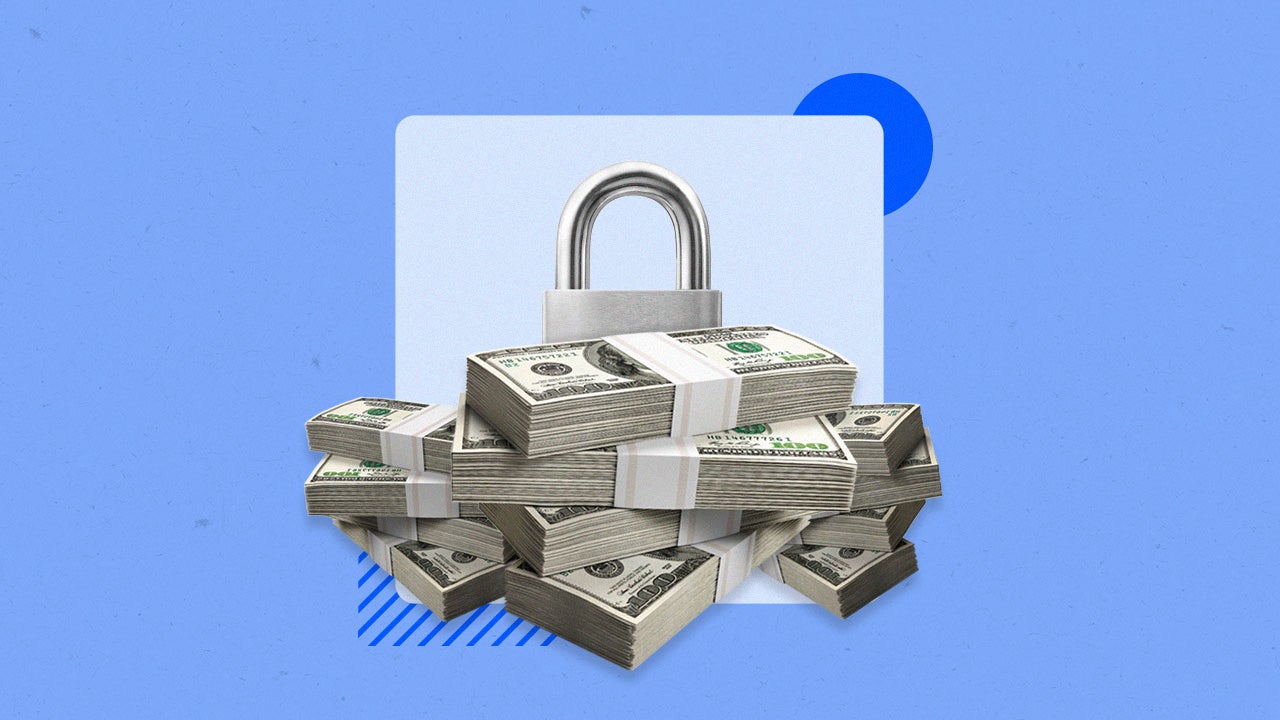- Having $100,000 in a CD earning 4.30% APY would earn you around $4,300 in interest in one year.
- This is more than double the $2,000 you’d earn with $100,000 in a one-year CD that earns the approximate national average of 2.00% APY.
- Meanwhile, some large brick-and-mortar banks are offering paltry rates of around 0.03%, which would earn a mere $30 in a year with a balance of $100,000.
What you’ll earn in one year with $100,000 in a certificate of deposit (CD) depends on the annual percentage yield (APY) offered. If you opt for a one-year CD with a 4.30 percent APY, for example, you’ll earn $4,300 in interest. However, those earnings will drop if you choose a CD with a lower APY.
With some banks and credit unions currently offering a 4 percent APY or higher, you’re definitely going to beat inflation. Plus, a one-year CD doesn’t lock up your money for too long, so it will be available again relatively soon for planned purchases or other investments.
| Type of 1-year CD | Typical APY | Interest on $100,000 after 1 year | Total value of CD with $100,000 opening deposit after 1 year |
|---|---|---|---|
| CDs that pay competitive rates | 4.30% | $4,300 | $104,300 |
| CDs that pay the national average | 2.00% | $2,000 | $102,000 |
| CDs from big brick-and-mortar banks | 0.03% | $30 | $100,030 |
You’ll often find competitive APYs at online banks, such as Ally Bank and Bask Bank. Additionally, some local credit unions and community banks may offer above-average APYs.
National average 1-year CD rates
The national average APY for one-year CDs is currently around 2.00 percent. While 2 percent is significantly higher than CDs that earn rock-bottom yields, competitive CDs can earn more than double this average. Investing $100,000 in a one-year CD that earns a 2 percent APY would provide you with around $2,000 in interest when the CD matures — for a total balance of $102,000, as shown below:
Type of account: 1-year CD
Opening deposit: $100,000
APY: 2.00%
Total interest after 1 year: around $2,000
Total value of CD after 1 year: around $102,000
Bankrate’s CD calculator is a quick way to determine the amount of interest you’ll have earned on a CD when its term is up.
Competitive 1-year CD rates
Shopping around for a bank with the best rates can make a significant difference in the total value of a CD when it matures. When you’re investing a large amount of money in a CD, a high yield can earn you thousands of dollars more than a low one.
If you were to deposit $100,000 into a one-year CD that pays a competitive APY of 4.30 percent, you’d have around $4,300 in interest when the term is up, for a total balance of $104,300.
Type of account: 1-year CD
Opening deposit: $100,000
APY: 4.30%
Total interest after 1 year: around $4,300
Total value of CD after 1 year: around $104,300.
1-year CD rates from big banks
Large banks with lots of branches tend to offer rock-bottom APYs on CDs and other deposit products. For instance, a standard one-year CD at U.S. Bank earns 0.05 percent APY, while one at Bank of America earns 0.03 percent APY (APYs may vary based upon zip code.) That earning power isn’t going to make you rich — in fact, it’s going to make your money lose purchasing power as inflation lingers above 2 percent.
If you were to deposit $100,000 in a one-year CD that pays a yield of 0.03 percent, it would have earned only around $30 upon maturity — for a total balance of $100,030.
Type of account: 1-year CD
Opening deposit: $100,000
APY: 0.03%
Total interest after 1 year: around $30
Total value of CD after 1 year: around $100,030
Finding a 1-year CD with the best rate
It pays to shop around for the best one-year CD rates. The most competitive yields can often be found at online banks, which don’t have to bear the overhead expenses of running branches. Credit unions may offer favorable rates as well.
If you’re investing $100,000 or more in a CD, look into jumbo CDs, which may pay higher rates than standard CDs. Some banks offer a tiered APY structure that rewards higher balances with better rates.
If you’re considering CDs with terms of other lengths, check to see if a bank’s longer-term CDs truly pay higher yields than its shorter-term ones. Currently, various one-year CDs are out-earning some four-year CDs and five-year CDs.
In addition to finding the best rate, you may also want to consider the early withdrawal penalty, if there is a chance you may need to access funds before maturity.
Bankrate’s editorial team has written in-depth bank reviews on dozens of financial institutions, which can help when you’re comparing rates and other features.
Are 1-year CDs safe?
Most CDs earn a fixed APY, which some savers find particularly valuable in a falling rate environment when the yields of variable-rate deposit products are likely to decrease over time. Thanks to a CD’s guaranteed rate, you won’t lose interest or principal as long as you don’t cash it in before it matures and incur an early withdrawal penalty.
As long as you’re with a federally insured financial institution, your money in a CD is safe up to $250,000 per depositor, per insured institution, per ownership category. This guarantees you won’t lose your money in the event of a bank failure.
The Federal Deposit Insurance Corp. (FDIC) is the agency that insures deposits at member banks, while the National Credit Union Administration (NCUA) insures deposits at member credit unions.
When your financial institution carries federal deposit insurance, it’s protected up to a limit of $250,000 per depositor, per institution, per ownership category. This means your money is safe in the event of a credit union or bank failure.
The ability to lock in a fixed return that is well above the current rate of inflation makes a one-year CD a compelling, risk-free investment.
— Greg McBride, CFA, Bankrate chief financial analyst
Other accounts that are beating inflation
In addition to CDs, it’s possible to find other deposit products with yields that are well ahead of the rate of inflation. These include high-yield savings accounts as well as competitive money-market accounts. In such top-earning accounts, your money won’t lose purchasing power as it would in an account that’s earning a below-average rate.
Bottom line
While all one-year CDs have the same term length, they don’t all offer the same yield potential. When you’re thinking about locking up a huge sum of money like $100,000, you need to invest some extra time to compare a wide range of options.
Cast a much wider net than big brick-and-mortar banks to include lesser-known banks and credit unions that may not have any branches. As long as your full deposit is covered by FDIC insurance or NCUA insurance, you’ll stand to earn a lot more money without worrying about the potential of losing it.
Why we ask for feedback
Your feedback helps us improve our content and services. It takes less than a minute to
complete.
Your responses are anonymous and will only be used for improving our website.
Help us improve our content
Read the full article here
















